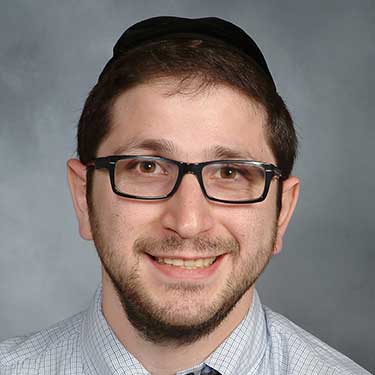Why did you choose to enroll in the HPE program?
When I decided to pursue this degree program, I was in the last year of my fellowship at the NewYork Presbyterian Hospital. I am currently pursuing an Advanced Inflammatory Bowel Diseases Fellowship at the University of Pennsylvania. Once I am finished, I want to join a clinical practice and I would also like to continue doing research and teaching. Having gone through medical school, I have acquired a strong knowledge in pathophysiology of disease but not much about policy, especially from the health economics perspective. With the rapid changes in the U.S. healthcare system, I thought the Health Policy and Economics program would be a great learning opportunity.
I was lucky to hear about the program when it first started at the hospital a few years ago. I looked at some other programs, but none had both health economics and health policy. The Health Policy and Economics program was unique to offer those two perspectives in tandem. In addition, the program was very convenient for me because of the location and the fact that I could complete the program part-time while finishing my fellowship.
Can you discuss the thesis project you’re working on as part of the HPE program?
My thesis project looked at the cost-effectiveness of different medications for a gastrointestinal condition called Inflammatory Bowel Disease. We tried to determine with our treatment algorithm the most cost-effective approach for pharmacological therapeutics. Basically, we were asking which option would give the best bang for the money to treat this disease, since new medications are incredibly expensive for patients. To give an example: I’ve found that for patients who fail the first-line therapy, choosing a second drug from the same class is more cost-effective than switching to a different class of drug. Generally, if a patient's treatment doesn’t work, they might give up and try to switch to a different approach. However, it turns out that this approach is less effective and more costly. I think these findings will certainly shape gastroenterology practice. In doing this project, I picked up tools that I am able to apply far beyond health policy.
What have you most enjoyed about the HPE program?
I enjoyed the diversity of backgrounds of the students. A few of us were physicians, some had economics backgrounds, others health policy, computer science and IT. It was a really cool mix of people. This mix allowed us to learn from each other. So even though I was one of the people closest to the day-to-day practice of medicine, I learnt from class mates that were in health insurance companies or had had internships in government agencies. In addition to this peer-learning, I learnt a lot from the professors and faculty mentors. They are a fantastic group of people that are available anytime; they are approachable and responsive. I think they genuinely care about us, and I really appreciate that.


